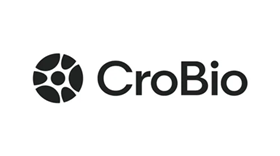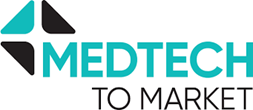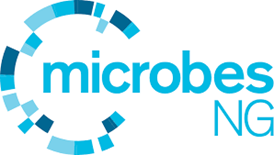In the world of innovation, the cost of science extends far beyond research budgets and laboratory expenses. Maintaining a successful company goes beyond low expenses and high-profit margins. Companies must navigate strategic investments in intellectual property, talent development, sustainability practices, customer relationships, and partnerships with collaborators and investors. Starting a company from scratch takes drive, determination, and perseverance.
In this article, we gain insight into the true cost of science through the lens of three companies in the microbiology field to understand their experience of balancing innovation, investment, and sustainability to drive their success.

CroBio was founded in 2019, during the second year of Dr Ross Mulhall’s PhD that focused on developing antibacterial surfaces to combat bacterial biofilms on high-contact areas. At that time, he participated in Biotech YES, a biotech commercialisation program in partnership with Syngenta, where Ross and his teammates explored ways to improve water use efficiency in agriculture. They envisioned reengineering root-associated microbes to produce a sponge-like biomaterial that could enhance soil structure by boosting water retention, reducing nutrient runoff, and even contributing to carbon sequestration. Recognising the potential of the business proposal Ross developed, he shared the idea with his father, Wayne. Together, they saw it as an opportunity worth pursuing. With Wayne’s extensive experience in renewable energy and senior management, and Ross’ background in academia and scientific research, they felt they had a strong foundation to build CroBio.

Dr Matt Pearce established Medtechtomarket in 2012 after a long career in the diagnostics industry, mainly developing and manufacturing point-of-care diagnostic instruments and tests for the global market. Across the Diagnostics Industry, new diagnostic systems (analysers and test cartridge-based systems) typically take up to 9 years to develop and cost $50m+. Companies spend around 15-35% of their sales revenue on grossly inefficient and expensive new product development.
Medtechtomarket was established to allow complete lifecycle outsourcing. As a company, they have vast experience in this industry and a long track record of successful product launches. Medtechtomarket is not just a design company, they provides full technical file system development (including the biochemistry, material science, biohazardous product testing, instrumentation, full verification and validation testing and compliance), manufacturing, clinical trials, and regulatory submissions - usually EU and US FDA initially, over a very wide range of IVD technologies. That allows the company to offer around 90% reduction in costs, >60% reduction in time to market, reduced technology obsolescence, reduced risk, and more rapid portfolio expansion.

MicrobesNG was founded at The University of Birmingham with the vision to democratise microbial genome sequencing by making it accessible to everyone. In 2014, Professors Nick Loman and Ian Henderson secured a £1.2M BBSRC grant to launch our specialised service, debuting in 2015 with the first-ever £50 bacterial genome. In 2019, MicrobesNG separated from the university and started an independent business. Today, our 18-person team, headed by Nick, serves a global market with six core services and custom metagenomics solutions, putting people and innovation at the heart of advancing microbial genomics.
What were some of the most significant financial challenges you’ve faced for your company, from developing an idea to a fully established company?
CroBio - The reality is that if Wayne and I hadn’t been fortunate enough to cover the initial costs to protect our IP, CroBio wouldn’t be here today. While some early-stage funding is available, the barriers to entry remain high. We were fortunate to secure a pre-seed investment in 2020, but even reaching the stage where we could apply for that funding required a substantial upfront investment. This is a common but often overlooked hurdle for early-stage startups; the initial costs of IP protection, lab setup, and foundational research are critical but can be prohibitive for many.
Medtechtomarket - Working with Academic Spin-outs, SMEs, and startups, the program structures can be more staggered to allow for grant or investment rounds. Whilst the pandemic was good for diagnostics awareness, the subsequent financial situations have made it harder for fundraising, and the time to close an investment round is longer. Licensing from Universities of technology is harder to achieve, and the availability of translational grants has become more competitive. So, we have consciously broken down each product development process into chunks to allow alignment with the funding stages, with the expectation that at each stage, the product has a higher net present value and becomes more attractive for further investment.
MicrobesNG - Identifying and engaging the right business partners to ensure you have the expertise to meet financial challenges is crucial for success. Originally established with BBSRC funding within University of Birmingham we had the opportunity to realise our vision while operating within the support of the University infrastructure. From day one we had “built-in” expertise to help us turn our ideas into reality. Changing our business model, operating structure and migrating our existing customer base (to a new trading entity) was a real challenge. These were all successfully achieved by utilising the expertise of our business partners and the University Enterprise Team. So, surround yourself with the right people, be willing to learn and adapt as you turn your ideas into reality!

Beyond financial costs, what other organisational demands have you encountered the most while developing the company?
CroBio - One of the biggest challenges - and sacrifices - is navigating the emotional rollercoaster of building a climate-tech startup. The world of climate tech is dynamic, volatile, and incredibly fast-paced. On any given day, you can go from feeling like everything is moving according to plan to suddenly feeling like everything is falling apart. Regulating those highs and lows has been essential, and staying calm and level-headed through the inevitable ups and downs has become a key focus.
A more personal challenge has been learning to step back and reflect on CroBio’s accomplishments. It’s easy to become so focused on the next task or milestone that you forget to recognise how far you’ve come. Taking moments to pause and reflect on our achievements helps maintain motivation and perspective. It’s not until I truly take stock of our progress over the past half-decade that I realise how far we’ve come, and I’m still learning to do this consistently.
Medtechtomarket - Regulatory changes have occurred over the past few years. Most notably, we have been seeing increased scrutiny of the FDA through the 510(K) process and the introduction of IVDR in Europe. For us, that is generally not an issue as we develop for compliance with both. Still, it does mean that early licensing of technologies to industry is becoming harder because there are greater regulatory hurdles for the acquirer to comply with and, in many cases, backfill the technical file. The availability of notified bodies to perform the technical file review is becoming harder, making it even more important to prepare the technical file properly in the first place.
MicrobesNG - We have focused on recruiting and retaining an incredibly talented team that really understands our company ethos. As we grow, we will continue to build career progression pathways that foster internal opportunities for advancement and skills development. We aim to be an “Employer of Choice” and grow future leaders from within. Balancing team workload with space for creativity is also essential. We dedicate time to R&D, encourage cross-team collaboration, and give everyone a voice. Our “Ask Us Anything” sessions allow team members to engage openly with leadership, enhancing collective awareness and inspiring innovation.

What unexpected challenges have you encountered when transitioning from early-stage ideas to launching your company?
CroBio - One significant lesson I had to master quickly was navigating the differences between global markets. Regulations vary widely and often require tailored approaches for each region. While fast-growing startups need a global reach to stay competitive, learning the regulatory landscape of even one geographical market can be an intense learning curve. The challenge is to understand how our technology can be adapted for different regions and how it can align with the specific regulatory and environmental requirements unique to each market.
What advice would you give to others looking to launch a science-based startup, especially those transitioning from academia to industry?
CroBio - Ask questions constantly, push yourself into unfamiliar situations, and don’t hesitate to reach out to experts for help, advice, or introductions. When I first started CroBio, pitching to investors felt incredibly uncomfortable, but I knew no one else would if I didn’t do it. Over time, with practice and persistence, it became second nature. You’ll start doing things you never imagined were possible.
On a practical note, secure your IP as early as possible. Your IP is your power - it gives you leverage in early conversations with investors and partners. Another significant turning point for CroBio was being accepted into IndieBio, a biotech accelerator focused on human and planetary health, based in New York. IndieBio played a huge role in shaping CroBio and shifting my perspective from purely scientific to one geared toward structured commercial innovation.
In the context of diagnostics, how do you foresee technological advancements like AI and machine learning affecting both the speed and cost of development?
Medtechtomarket - Without a doubt, AI will profoundly affect image analysis in pathology, automated diagnostic statement interpretation, multiple gene profile analysis, and assisting with remote patient monitoring and virtual wards. The regulatory framework for these rapidly evolving technologies will inevitably lag. For example, mobile phone use in diagnostics is still very limited and hampered by the regulatory framework, ultrafast evolution of next-gen phones, which outstrip the diagnostic program development, rapid obsolescence of mobile phone O/S, cameras, and hardware, and ability to validate the operating system/camera settings transparently, etc, as these are the software of unknown provenance (‘SOUP’). The ability to test and model large DNA arrays and gene expression under different clinical conditions is an exciting new expansion of AI use. However, AI in various formats will certainly improve diagnostic technology in the future and open up new areas of diagnostic technology.

What strategies have you implemented to reduce the environmental or sustainability costs associated with large-scale sequencing?
MicrobesNG - We’ve made significant waste reduction efforts, optimising protocols to cut reagent and plasticware waste, eliminating harmful organic solvents from DNA extraction methods, and reducing paper and postal waste by streamlining our sample submission process. In 2023, we launched the UK arm of our collection service, aiming to reduce the environmental footprint of sample deliveries by better coordinating shipments. To lower our carbon footprint, we source UK consumables and work with environmentally responsible suppliers when UK alternatives aren’t available. We also minimise transport energy usage and packaging waste by ordering in bulk.
If you were to start the company again, would you do things differently based on what you have learned from past experiences? If so, could you give an example?
Medtechtomarket - I would have increased our advertising and awareness program, and outreach to universities and our core industrial customer base. We have grown organically and via word of mouth, and we have loyal and repeat customers. There are advantages to using us for outsourced product development; we need to evangelise more! The financial benefits for both Industrial Partners and University Technologies are apparent.
MicrobesNG - Our experiences have shown us that managing cultural change is essential. Moving from University to an independent company was a critical transition, and handling this shift more proactively could have produced faster growth in our early stages. We view challenges as opportunities for growth and learning, and this experience reinforced the importance of aligning our team with an independent, innovative mindset right from the start.








No comments yet